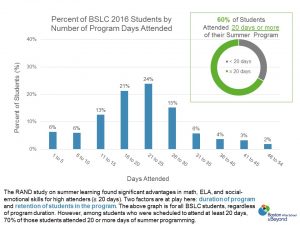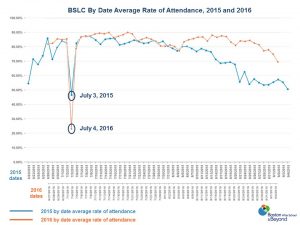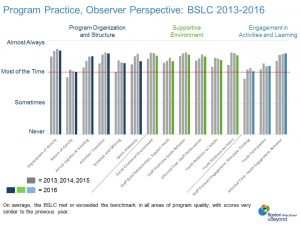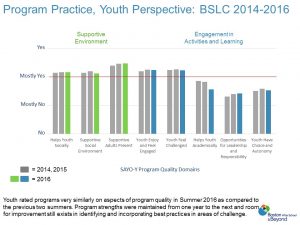Measurement / Data Results / Highlights from the 2016 Boston Summer Learning Community

Data Results
Highlights from the 2016 Boston Summer Learning Community
- Best Practices
- Featured Program Metrics
- Additional Program Metrics
- Organization of Activity
- Activities’ Transition Time
- Staff Positively Guide Behavior
- Youth Relations with Adults
- Youth Relations with Peers
- Space Adequacy
- Overall Socio-Emotional Environment
- Informal Time: General Staff Performance
- Informal Time: Youth Engagement and Behavior
- Youth Feel Challenged
- Supportive Adults Present
- Helps Youth Academically
- Helps Youth Socially
- Social-Emotional Skills
- Measurement
On average, observers and youth rated programs at or above the benchmark in 9 out of 10 areas of practice that build ACT Skills.
66% – 91% of programs hit the benchmark of quality practice, depending on which skills the practices are meant to build.
Room for improvement was identified in:
- Achieve and Thrive practices: critical thinking, perseverance, self-regulation)
- Opportunities for Youth Leadership & Choice
Over time, the growing BSLC has maintained strong positive trends in above-benchmark performance.
On average, youth participants achieved statistically significant growth in all ACT skills, as rated by program staff and youth self-report
Areas of the lowest skill performance or growth:
- Student self report: self-regulation
- Program staff rating: perseverance, critical thinking, communication, and self-regulation
Areas of the highest skill performance or growth:
- Student self-report: empathy
- Program staff rating: peer relationships, adult relationships






